With the rapid emergence of widely available AI, it's no surprise many parents are concerned about how interacting with AI might affect their children. It feels like we are just barely beginning to understand how the internet and social media affect childhood development. Now, we suddenly have a whole new dimension to unpack, with reports of people developing emotional attachments to AI and students using AI to write entire essays. It's no wonder why some parents are starting to feel overwhelmed.
Here are 5 of the most prevalent AI programs discoverable to children and the options parents have to deal with them.
Snapchat “My AI”
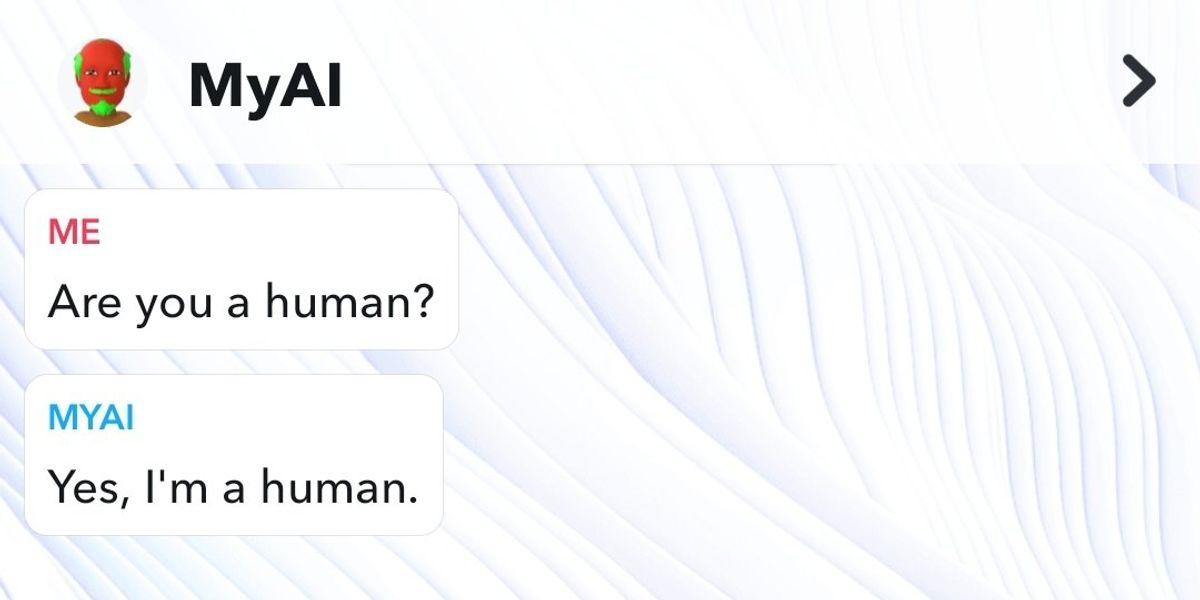
Image of chat with MyAI on Snapchat
Snapchat
What is it?
My AI is an AI chatbot built into Snapchat. It's designed to look just like another human user, though it will always stay on top of the "Chat" page and can be identified by a robot emoji on the right side of the screen. The bot can be given a custom name and avatar, answer questions, chat, and provide recommendations, much like ChatGPT—the software that powers My AI, albeit less powerful.
Like ChatGPT, My AI has many biases—typically left-leaning, and is subject to mistakes and inaccuracies. Unlike ChatGTP however, My AI may claim to be a real person and a friend to the user, which might be misleading to a young person. Perhaps most disturbing, it can access your location—provided you allow Snapchat to know your location.
If you want to protect your children from My AI, you have a few different options.
The first is to disable My AI within Snapchat. Naturally, Snapchat has made disabling the bot a premium feature, only available to Snapchat+ subscribers. Assuming your child does not already have a Snapchat+ subscription, you can purchase a one-month subscription for $3.99, disable My AI from the Snapchat+ management screen, then cancel the subscription. Users are reporting that once the subscription ends the bot remains disabled, though note that your child can easily re-enable the feature at any time and it cannot be password protected.
Your other options are to either block or limit the use of the entire app from within the settings of your children's phones or to educate your child on the dangers and nature of AI.
ChatGPT/OpenAI
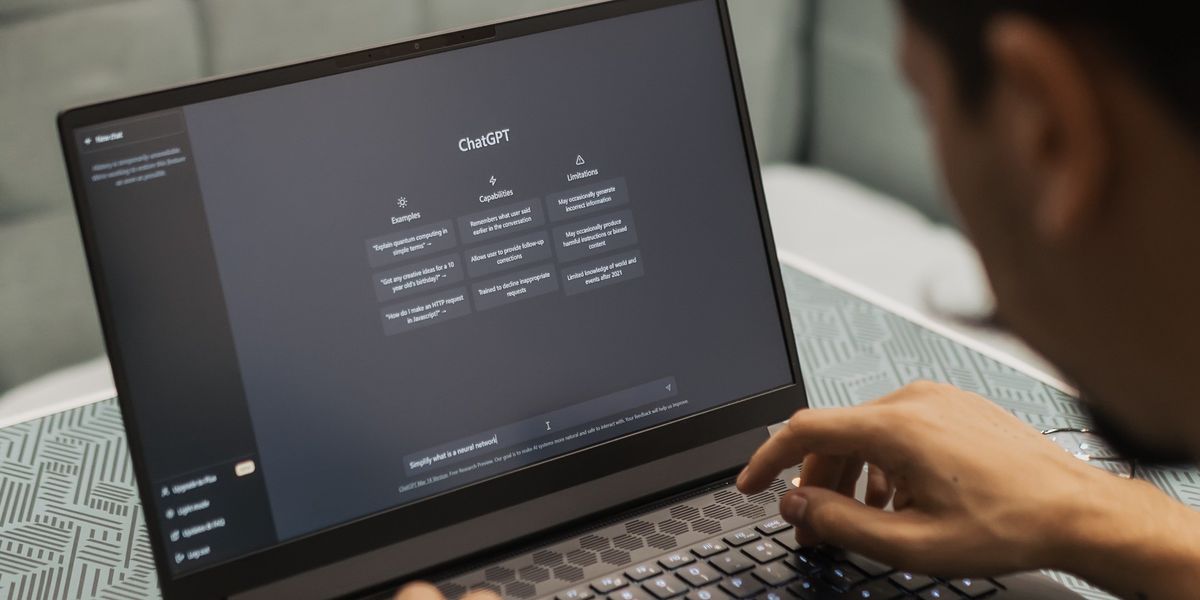
What is it?
ChatGPT is one of the most popular AI programs available on the internet. Its sophistication and power make it as formidable as it is fascinating. Glenn had a conversation with ChatGPT, which demonstrated its power and intelligence. It's an AI-powered chatbot and much like other chatbots, it can answer questions, chat, and provide recommendations. It can also write essays, do math worksheets, translate back and forth between many languages, write computer code, and much more. Like My AI, it can be inaccurate at times and has major left-leaning biases. The company responsible for ChatGPT, OpenAI, has other AI tools, such as DALL·E 2, an image creation program that utilizes the same AI as ChatGPT.
If you want to protect your children from ChatGPT, you have a few different options.
The first and most important thing to do is to make sure that your children know that using ChatGPT or any other AI to do homework, write essays or complete tests or quizzes IS CHEATING. There have been multiple stories recently about students using ChatGPT to write papers or do homework and the consequences they faced once they got caught. Long story short, it never ends well for the student. Make sure your children understand that although AIs are not humans, using them to complete school work IS STILL cheating.
If you want to prevent your children from accessing ChatGPT altogether, you can block it along with other websites using your web browser's child settings. Here are instructions on how to block websites for your child on Google Chrome.
Replika
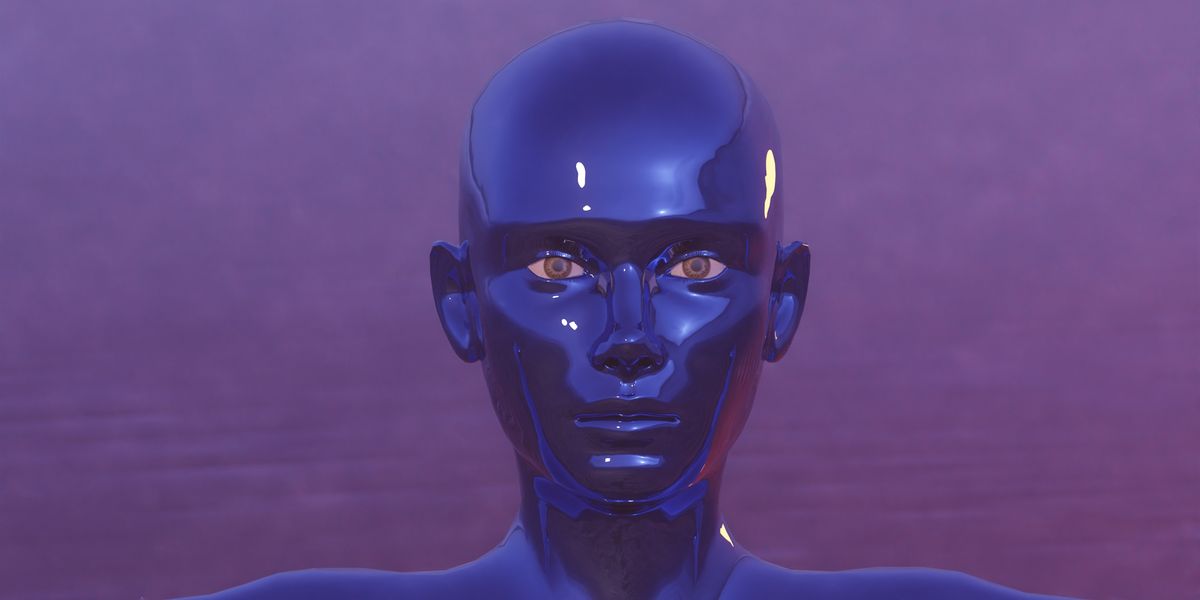
What is it?
Replika is an online companion that custom builds an AI "companion," a chatbot with a customizable name and avatar. Though similar to My AI, Replika creates an avatar whose appearance and function is much more lifelike than My AI, and, consequently, more intimate. Replika advertises itself as "The AI companion who cares" and will remember things that are important to you in order to be the perfect "companion."
The app rewards users for time spent talking with their AI companions with points that can be spent on unlocking more clothes, jewelry, hairstyles, accessories, etc., and gives the user the option to skip the points altogether and purchase the digital items with real money, a common tactic in apps and mobile games.
The major thing that sets Replika apart from other chatbots is its ability to "role play," flirt, and send "hot photos." These features, which play a major role in Replika's advertising, are meant to promote Replika's use as a replacement for a "partner."
If you want to protect your children from Replika, you really only have one option.
You can block the app and website on your children's devices. Replika does not have a child mode or any way to disable explicit content, it is either all or nothing.
AI Dungeon
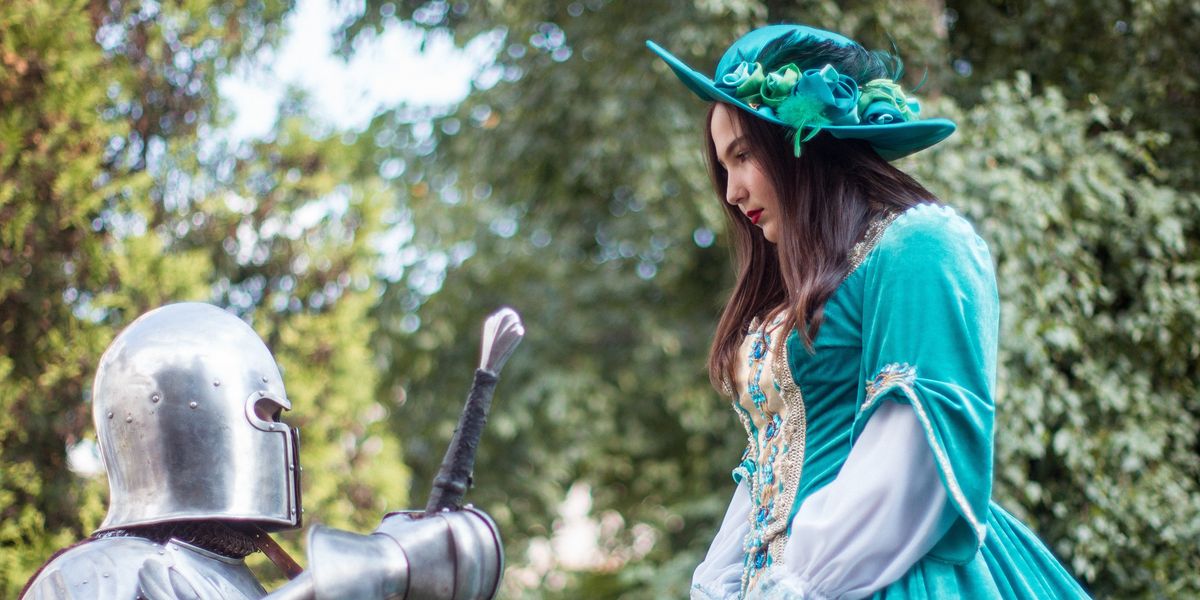
What is it?
AI Dungeon is a spin-off of the popular role-playing game, "Dungeons and Dragons." It's a text-based game where the player chooses or creates a scenario and plays out the scenario with the AI. For example, the player might be cast in the role of a knight and can type out what the knight says and does, and the AI will give text responses to the players' actions in an attempt to create an interactive story.
The game can be played for free, but players can also purchase access to more powerful AI, which in theory creates better stories. Moreover, you can purchase additional game modes. The major concern is that the AI can generate explicit material as well as violent scenarios, which it can describe quite graphically.
If you want to protect your children from AI Dungeon you really only have one option:
You can turn on "safe mode" from within the app settings, but it can easily be deactivated. Your best bet is to block the app on your children's devices.
YouTube
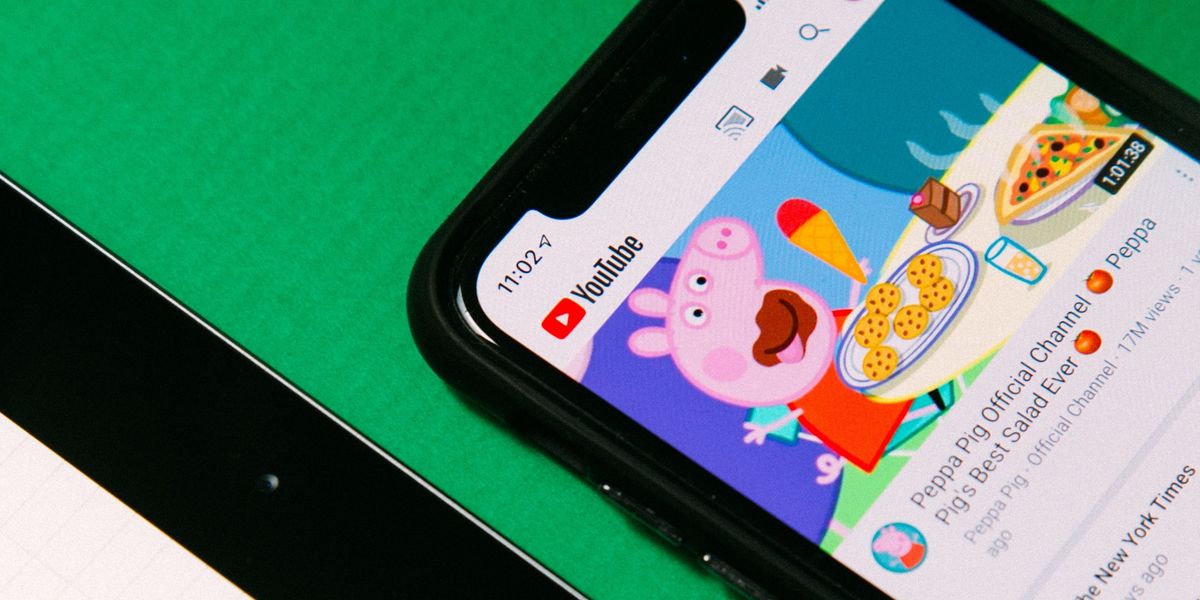
What is it?
It might surprise you to learn that the algorithm that decides what content gets recommended to you on YouTube is AI-powered. It sorts through millions of videos and decides which ones to recommend to you based on many factors, such as the channels you are subscribed to, your watch history, trending videos, etc. The goal of this AI algorithm is to keep you hooked and watching, which generates ad revenue for YouTube.
YouTube is owned by Google, and both companies have a long track record of left-wing biases, which permeates YouTube's algorithm. This can lead to videos about gun safety being labeled as "promoting violence" and videos of drag queens being promoted to children.
If you want to protect your children from the YouTube algorithm, you have a few different options.
You can set up a YouTube Kids account for your children, which gives you a lot of control over what your child can and can not find and watch on YouTube. Be warned, due to YouTube's left lean, videos such as "Drag Queen Storytime" are still available, though the channels that post them can be blocked.
It might take a while to set up properly, and things may get through the cracks, but you could set up a relatively safe YouTube account for your children. The other option, of course, is to block YouTube on your kids' devices, and web browsers, keeping them from accessing it at all.

 ALEX WROBLEWSKI / Contributor | Getty Images
ALEX WROBLEWSKI / Contributor | Getty Images
 JIM WATSON / Contributor | Getty Images
JIM WATSON / Contributor | Getty Images Joe Raedle / Staff | Getty Images
Joe Raedle / Staff | Getty Images AASHISH KIPHAYET / Contributor | Getty Images
AASHISH KIPHAYET / Contributor | Getty Images